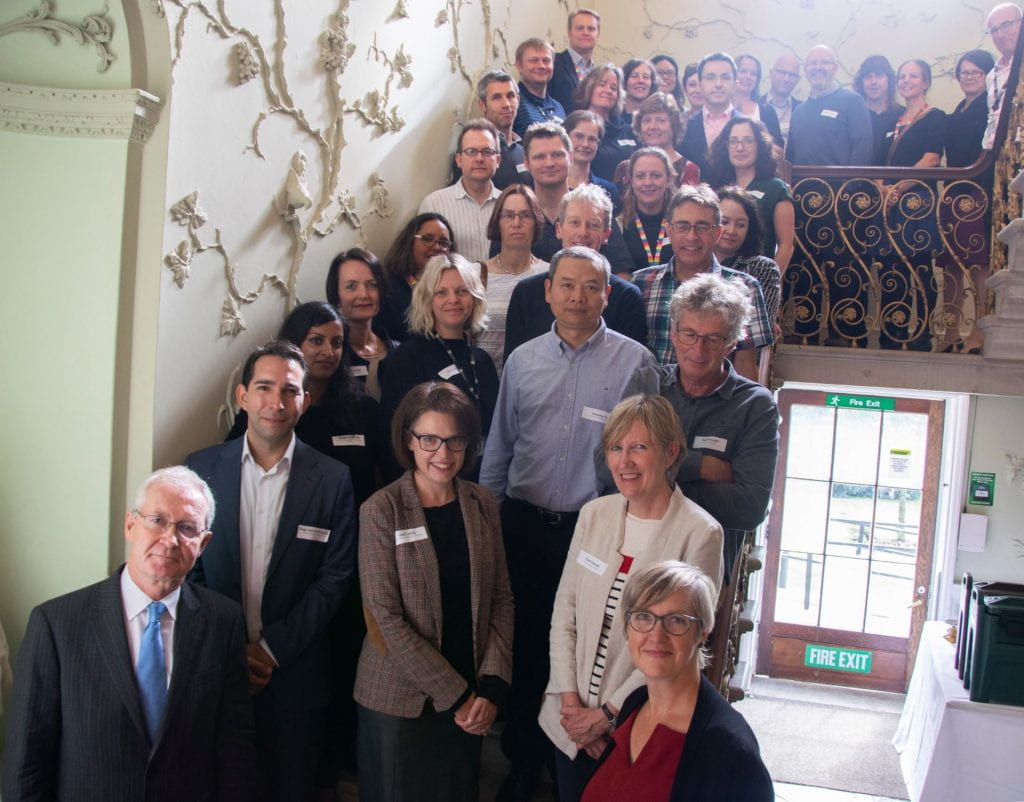 2020 has been a year like no other. Yet, despite the huge challenges and disruption caused by the pandemic, we’ve not lost sight of our overriding strategy goals; particularly our commitment to eradicate all forms of inequality from our community.
2020 has been a year like no other. Yet, despite the huge challenges and disruption caused by the pandemic, we’ve not lost sight of our overriding strategy goals; particularly our commitment to eradicate all forms of inequality from our community.
With this in mind, I wanted to share a brief update on our recent gender equality work and report some positive new developments.
Ongoing progress and new challenges
As COVID-19 continues to dominate the higher education landscape, we’ve been concerned about the growing evidence that it is having a disproportionate impact on women, ethnic minorities, and those with caring responsibilities. This month saw the first meeting of a new task-and-finish group made up of senior academics from across the faculties to examine the growing data on the impact of the pandemic on these groups, and to make recommendations regarding actions that might be needed to ensure that this year’s academic promotion round takes these issues into account.
Elsewhere, I’m very pleased to say that, despite the considerable difficulties posed since March, we were able to complete the second Female Leadership Initiative (FLi) programme in July. This was again highly successful, attracting over 90 applicants. We held a final session in September when we were joined by the Aurora cohort to discuss inclusive leadership. Two major themes that emerged were developing self-awareness about one’s identity and purpose in a leadership role, and the importance – never more so than now – of creating supportive networks.
Given this, it is especially pleasing to note that the Bristol Women’s Mentoring Network has continued throughout this year, with over 80 active mentees and 76 mentors. Most of these mentors are current University staff, but several Emeritus Professors and alumni have also volunteered their time. I am grateful to everyone who has given their time in this way.
This second round of the Mentoring Network has been very positively received, with a midway evaluation indicating that over 95% of respondents were finding the mentoring helpful, and more than 85% were making progress despite the challenges raised by the pandemic. Among the many positive comments were these thoughts from a mentee:
“I took so much out of the experience, the way our sessions were structured and how much time and effort they put into preparing and reviewing the ‘homework’ that was provided between meetings. I definitely feel more aware of my strengths and motivations and prepared for my next steps.”
The third mentoring programme will start in March 2021, and information on how to apply will be available from the beginning of December. Do look out for this if you think you might benefit from mentoring or be willing to act as a mentor. I have certainly found being a mentor very rewarding.
Elevate: raising our sights
I’m also delighted that we are leading the GW4 pilot of the Elevate programme, which offers new opportunities for Professional Services and academic staff from a Black, Asian or Minority Ethnic background who identify as female to meet, share, support and learn together across the four GW4 universities (Bristol, Cardiff, Exeter and Bath).
The programme, which launches in January, focuses on individuals with management and leadership potential but is very much more than a traditional CPD programme: it creates room for the history, culture and diverse lived experience of its participants, and will encourage them to reflect, explore and grow through connecting and building solidarity together. Participants will be able to co-create the content of the programme, so that it’s as relevant and meaningful to them as possible.
Tackling domestic abuse and gender-based violence
I am conscious that during the festive season there is often a spike in reports of domestic abuse and gender-based violence. Avon and Somerset police advise that there is concern that COVID-19 and its impact on unemployment, financial difficulties and the possibility of not being able to see family at Christmas could result in an increase in tensions and all types of abuse within the home.
Given this, I would encourage you to support the Public Health England ‘16 Days of Activism’ campaign against gender-based violence, which runs from 25 November to 10 December. You can help by knowing the signs of domestic abuse and how to support colleagues who you suspect are in an abusive relationship. You can also read our institutional policy statement on gender-based violence and abuse here.
Finally
While COVID-19 continues to represent a huge challenge for us all, the University stands firm in our commitment to build a diverse and inclusive University community. There remains much to do, as set out in our EDI Delivery Plan, but the clear progress we’re making, despite the pandemic, has been heartening to see. I look forward to updating you on further progress in the coming months.



